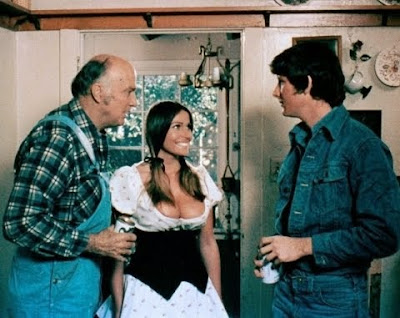The Battle of Algiers
That 1966's THE BATTLE OF ALGIERS was screened in the Pentagon following the U.S.'s invasion of Iraq in 2003 is endlessly fascinating (and telling) to me. Gillo Pontecorvo's newsreel style drama, carefully edited and produced to resemble a documentary, is considered by some to be a model for military strategy. The seven year Algerian war in the mid 1950s/early '60s was marked by aggressive guerrilla tactics, terrorism, and torture, inflicted by and on both sides.
The war was quite complex, nominally between the European French colonizers and the National Liberation Front (FLN), a rising socialist party that rallied notables and petty thieves alike in their efforts to obtain independence from France. Additionally, a civil war erupted between Alegrian loyalists and Muslim insurgents. Before Charles de Gaulle surrendered the north African nation, the streets were stained with the blood of fighters and innocent locals and tourists. Bombs took down luncheonettes and boarding houses, where suspected FLN members may have been harbored. There were no heroes, no one for whom to root, unless you were entrenched in either side's ideology. Would you endorse terrorism to liberate your country? Participate in a holocaust to that end? Ask an Israeli or a Palestinian that question. Moderates don't fare so well in this world.
Pontecorvo's landmark film jumps around a timeline, introducing us to common street criminals who become key FLN members. THE BATTLE OF ALGIERS is seen largely through the eyes of Ali (Brahim Haggiag), a simple man who finds himself at the end of his dramatic transformation barricaded in a tenement, about to be martyred for his cause. At the detonator outside is Lieutenant-Colonel Mathieu (Jean Martin), seen throughout the movie detailing battle plans for French paratroopers. His words sound uncomfortably familiar. Same as it ever was?
In my viewing experience, THE BATTLE OF ALGIERS is really the only film of its kind that can be accurately summarized as objective, or at least pretty damned close. Pontecorvo's camera maintains its distance, but always clearly and evenly documents wartime atrocities of which both sides were guilty. No one wears a halo. This is the best sort of approach for a quasi-documentary, in my opinion. Even with its final scene, as Algierians march in the streets to celebrate their independence, the victory may ring hollow when you consider the methodology, the cost. But to achieve a way of life, such a path is often unfortunately and inevitably littered with casualty, whether you fight along colonial, imperialist lines or against such thinking.



Comments